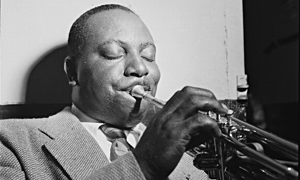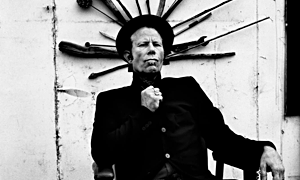Home » Jazz Articles » Book Review » You Can't Steal a Gift: Dizzy, Clark, Milt, and Nat
You Can't Steal a Gift: Dizzy, Clark, Milt, and Nat
 You Can't Steal a Gift
You Can't Steal a Gift Gene Lees
Yale University Press
ISBN: 15843002
When Gene Lees left Canada in 1955 to come to the United States, he had no idea what was awaiting him. Within a few years after his arrival, he landed the prestigious position of editor for Down Beat magazine. This allowed him to form close friendships with some of the most important performers in jazz music history. In his memoir, You Can't Steal a Gift, Lees centers his attention on four of those relationships: Dizzy Gillespie, Nat King Cole, Milt Hinton, and Clark Terry.
Considering his background and the level of notoriety of his subjects, Lees could have easily made himself the focus of his book. Instead, he chooses to keep himself in picture, but not as the center of attention. He approaches his text as if he was standing backstage watching watching one of his subjects play.
On the surface, You Can't Steal a Gift doesn't seem to demand attention. A potential reader might easily pass it by, thinking it's "just another jazz book." What sets it apart, however, is not its earth-shattering content, but its style. Lees is one of rare writers who possesses the gift of making each sentence count. He also has the ability to capture the reader's attention without resorting to sensationalism or hyperbole.
There's a lot more included in You Can't Steal a Gift than just his friendships with these four musicians. While you do get a close-up look at their lives, Lees brings much more along the way. The reader becomes immersed into the jazz scene of the day, as well. Like a musician who plays a riff from another song during a solo, Lees compliments his text with interesting details surrounding the story at hand.
You Can't Steal a Gift has a great deal to offer its readers. As is the case with many works of art, there's more than one level of meaning at work. On one this is a writer's memoir, discussing his exposure to jazz music; on another level, though, we have an interpretation of race relations in American society. His approach, though, isn't as much sermonizing as observation. Some of this observation provides a bitter pill of reality. In a concert in Birmingham, Alabama, for example, Nat "King" Cole was attacked by a group of white supremacists, and police had to come in to stop the attack. Lees, however, adds more to the story; he tells of how upset the white audience and the local community was at this affront. And even with a subject as serious as this Lees adds a touch of humor. "If I had any racial prejudice, it was this: I didn't think Canadians could play jazz."
You Can't Steal a Gift is not a forum to expose the evils of racism, but an example of how we can overcome it. He shows that while there are negative aspects in life, we are basically all playing the same tune. He quotes Nat "King" Cole as saying, "In my way, I may be helping to bring harmony between people through music." This is also what Lees works to accomplish through his writing.
Tags
PREVIOUS / NEXT
Support All About Jazz
 All About Jazz has been a pillar of jazz since 1995, championing it as an art form and, more importantly, supporting the musicians who make it. Our enduring commitment has made "AAJ" one of the most culturally important websites of its kind, read by hundreds of thousands of fans, musicians and industry figures every month.
All About Jazz has been a pillar of jazz since 1995, championing it as an art form and, more importantly, supporting the musicians who make it. Our enduring commitment has made "AAJ" one of the most culturally important websites of its kind, read by hundreds of thousands of fans, musicians and industry figures every month.

























